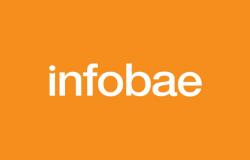The atmosphere that was felt this Monday after the Spanish Language and Literature exam, with which the dreaded EBAU tests began in La Rioja, was one of total tranquility. “It went quite well, there wasn’t much difficulty,” acknowledged Sheila Sánchez, a student … from the IES Batalla de Clavijo, right after finishing this test. “I calmed down when I saw the exam, they made things very easy,” added her classmate Lorena Peralta. They were not the only ones who appreciated the level of the questions posed in this subject of the compulsory phase, in which 1,536 students took part who, a few hours later, also took the English, Spanish History or Philosophy exams.
All of them had to demonstrate their knowledge with some somewhat peculiar questions… A comment about the way you dress, an essay in English about your favorite restaurant or a proposal about a special event that the town hall where you live should celebrate are some of the questions that appeared in the different subjects. Would you be able to overcome them successfully? Diario LA RIOJA proposes a challenge for you to face the university entrance exams:
First exam Spanish Language and Literature
Lorca, García Márquez and a comment on the way they dress
A text comment by David Dorenbaum on what the way of dressing implies from a psychological point of view and another by Andrea Köhler on the difference between waiting and hope opened the EBAU tests in La Rioja this Monday, which began with the Spanish Language and Literature exam. The text commentary by these authors only constituted the first block of this subject, in which the university applicants had to answer four questions.
In this test, which also consisted of a syntactic analysis, students were able to choose between two literary fragments: ‘The House of Bernarda Alba’, by Federico García Lorca; and a fragment of ‘Chronicle of a Death Foretold’, by Gabriel García Márquez. Finally, they were required to present the content of one of these two literary themes: the poetry of Blas de Otero or the theater of Buero Vallejo.
Your browser does not support iframes
An essay about your favorite restaurant
An essay about your favorite restaurant or a formal letter to propose the celebration of a special event in the town where you live (such as a concert or a festival) are the two options that were offered in the English written expression exercise (known as Writing). In this exam, university applicants also had to answer three questions that assessed their written comprehension with one of the following two texts: ‘The truth behind the seven healthiest beliefs’ or ‘Detroit: then and now’. Finally, in the ‘Use of English’ section, the students had to choose four sentences out of the eight proposed in this block.
Your browser does not support iframes
Third exam History of Spain
The Cortes of Cádiz, the civil war or Franco’s dictatorship
In the afternoon, after a short break, the students from Rioja who decided to enroll in the History of Spain (in this call they could choose between taking the exam in this subject in the compulsory phase or in the History of Philosophy) had to answer four questions from the eight that were proposed.
The options were, in this case, from the Cortes of Cádiz and the Constitution of 1812, to the collapse of the liberal system: reformist biennium; civil war: violence and repression, and the consequences of this war conflict; Franco’s dictatorship: economic developmentalism or the transition: dismantling of the regime. Constitution of 1978 and State of the Autonomies.
Your browser does not support iframes
Fourth exam History of Philosophy
Plato, Hume, Descartes or Marx
The History of Philosophy exam, which was faced by all students who preferred to ‘dismiss’ the History of Spain in the mandatory phase of this call, was made up of three blocks in which university applicants had to demonstrate their knowledge of a of the four philosophical theories that were proposed, such as the metaphysics of Descartes or the historical materialism of Marx; and answer one of the two relationship questions.
In this last section, the young people from La Rioja had to relate some thought of an author from ancient or medieval times (Plato, Aristotle or Thomas Aquinas) or from the contemporary period (Marx, Nietzsche or Ortega) with the thought of another author or authors. of that time. The test also included three questions related to the texts of David Hume or Plato (you had to choose one).
Your browser does not support iframes
#Argentina





